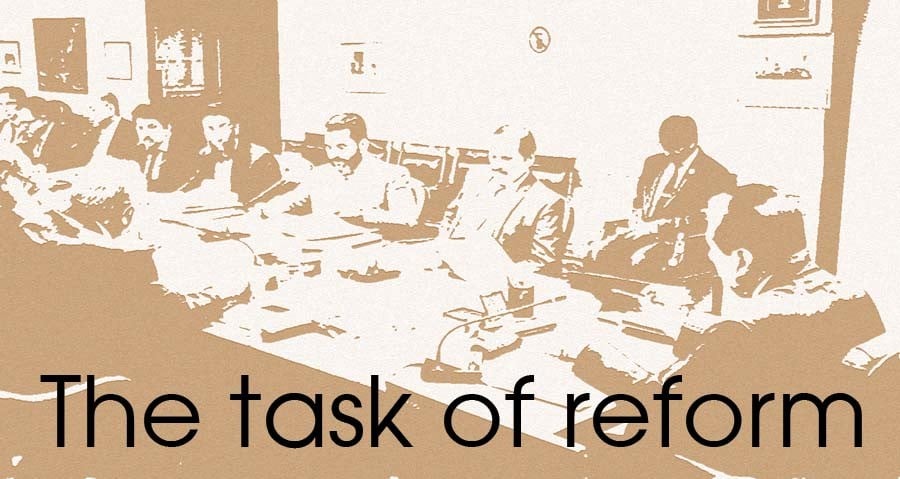

Of the many task forces formed by the present government, one is on civil service reforms. Prime Minister Imran Khan has also spoken to the civil servants. Prior to this, there was a huge shuffle in bureaucracy soon after the new government assumed office.
This was expected because the outgoing PML-N government was supposed to have ruled through a coterie of civil servants, believed to the ‘blue-eyed’ boys of the ruling family, both at the centre and in Punjab. A few of them are facing inquiries by the accountability bureau and have been put behind bars. Some bureaucrats who were hand-picked to perform certain tasks in a certain time frame -- like the power projects for instance -- on comparatively hefty salaries have been asked by the Supreme Court to return their salaries to the national exchequer.
Amid rumours that civil servants are demoralised and refuse to accept responsibility for the tasks or sign files, the prime minister deemed it fit to speak to them and underscore the need for a "robust bureaucracy". While he tried to raise their morale and spoke of giving them dignity and respect, referring also to their meager salaries, he castigated the political interference or what has come to be known as politicisation of bureaucracy. He did quote Khyber Pakhtunkhwa’s example as a success story of reform, where indeed some positive progress has been made in the police force.
Broadly, there wasn’t anything potentially worthwhile for the civil servants in the prime minister’s speech. Besides, no one knows what transformational ideas will the task force bring to the table, considering that all previous reforms in this country have "stalled at the planning stage".
Read also: The task of reform
In our Special Report today, we have tried to tackle the issues with bureaucracy in general as well as the present government’s problems, bureaucracy’s own concerns and the possibility of reform now articulated through the formation of a task force as well as the reforms that were earlier tried. Politicisation, corruption, accountability, expertise, training, salaries have all been discussed apart from an interview with Dr Sameen Mohsin Ali, a public policy analyst.